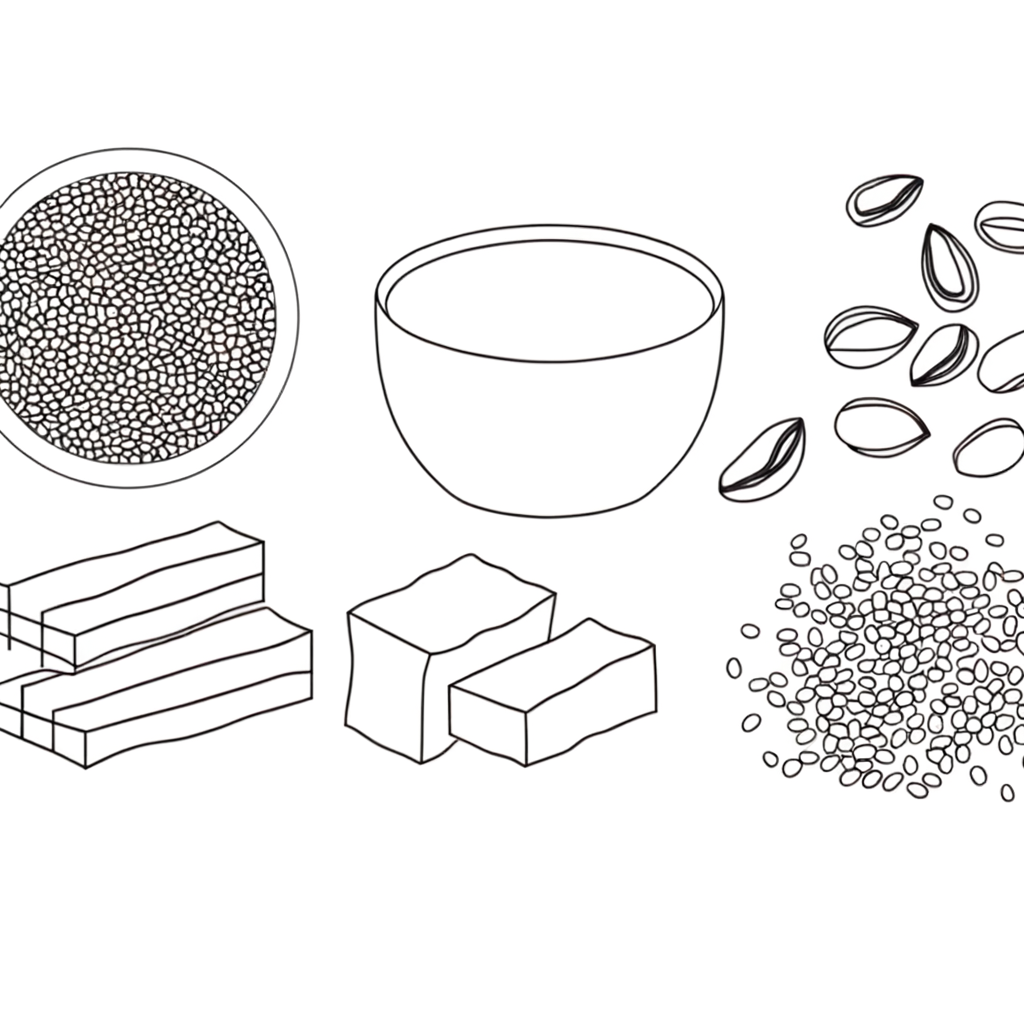4 High-Protein Foods Every Vegetarian and Vegan Needs to Know

Think you’re stuck with bland chicken and protein powder to hit your macros? Think again! 👊
Plant-based protein is having a major moment right now – and for good reason.
Whether you’re fully vegan, vegetarian-curious, or just trying to cut back on animal products, getting enough protein without meat can seem tricky at first.
But here’s the deal: plants pack plenty of protein power. You just need to know where to look!
I’ve done the research on the best plant-based protein sources so you don’t have to spend hours scrolling through nutrition blogs or desperately trying to decode food labels.
Let’s dive into the world of beans, tofu, and all things plant protein! 🌱
First things first – you absolutely can build muscle, feel full, and thrive on plant proteins.
While animal proteins like meat, eggs, and dairy are “complete” (containing all nine essential amino acids your body needs), many plant proteins are “incomplete.” But don’t worry! By eating a variety of plant foods throughout the day, you’ll easily get all the amino acids you need.
The cool part? Plant proteins come with bonus nutrients that animal proteins don’t have:
- Fiber (hello, gut health! 💩)
- Disease-fighting antioxidants
- Zero cholesterol
- Lower environmental impact
Top Plant Protein Powerhouses
1. Legumes: The Protein MVPs
Beans, lentils, and peas are absolute protein powerhouses:
- Lentils: A cup of these tiny nutritional gems packs about 18 grams of protein! That’s as much as 3 eggs. Plus, they’re dirt cheap and cook faster than most beans. Red lentils in particular cook in just 15-20 minutes. No excuses! 😉
- Chickpeas: These versatile legumes contain about 15 grams of protein per cup. Turn them into hummus, roast them for a crunchy snack, or throw them on salads.
- Green Peas: Surprise! These little green guys pack over 8 grams of protein per cup. Not bad for something most people consider a basic side dish!
2. Nuts and Seeds: Small But Mighty
These tiny nutritional powerhouses pack serious protein:
- Hemp Seeds: The secret weapon of plant-based eaters! They’re a complete protein (rare in the plant world) with all nine essential amino acids and about 10 grams of protein in just 3 tablespoons. Sprinkle them on literally everything. 🌱
- Peanuts and Peanut Butter: A classic for good reason! Two tablespoons of peanut butter delivers about 8 grams of protein. Just try finding a more delicious protein source—I’ll wait.
- Chia Seeds: These tiny seeds expand in your stomach (helping you feel full) and pack about 5 grams of protein per ounce, plus tons of fiber and omega-3s.
3. Soy Products: The OG Plant Proteins
Soybeans are protein champions in the plant world:
- Tofu: This chameleon of the food world takes on whatever flavors you add to it. With about 20 grams of protein per cup, it’s a no-brainer for protein-packed meals. The firmer the tofu, the higher the protein content.
- Tempeh: This fermented soybean cake has a nutty flavor and chewy texture. With around 31 grams of protein per cup, it’s a serious protein heavyweight. Plus, being fermented means it’s gut-friendly! 🦠
- Edamame: Young soybeans that deliver about 17 grams of protein per cup. Perfect for snacking or adding to grain bowls.
4. Grains and Pseudocereals: Surprising Protein Sources
Some grains bring more to the table than just carbs:
- Quinoa: The rock star of the grain world (technically a seed though!) that provides about 8 grams of protein per cooked cup. It’s also a complete protein containing all essential amino acids.
- Seitan: Made from vital wheat gluten, seitan has a meaty texture and contains about 25 grams of protein per 3.5 ounces. Just not for the gluten-intolerant crowd, obviously! 🚫🍞
Why Plant Protein Rocks (Beyond the Protein)
Making the switch to more plant proteins isn’t just about the protein content—there are tons of other benefits:
- Disease-fighting powers: Studies show plant-based diets are linked to lower risk of heart disease, type 2 diabetes, and certain cancers. That’s a pretty sweet bonus, right?
- Planet-friendly: Producing plant proteins typically uses less water, land, and energy than animal proteins. Your future grandkids will thank you! 🌎
- Budget-friendly: A pound of dried beans costs a fraction of a pound of meat and makes way more servings. Your wallet will be as happy as your body.
- Digestion-friendly: Plant proteins come packaged with fiber, which most Americans don’t get enough of. Better digestion, more regular bathroom visits… I’ll stop there. 😅
Making Plant Protein Work For You
Not sure how to actually incorporate all these plant proteins into your daily life? I’ve got you covered:
- Start with what you know: Love tacos? Use beans or lentils instead of ground beef. Fan of stir-fry? Try tofu or tempeh instead of chicken.
- Combine for complete proteins: Rice + beans, hummus + whole grain pita, nut butter + whole grain bread. These classic combos ensure you get all essential amino acids in one meal.
- Sneak them in: Add hemp seeds to smoothies, blend silken tofu into sauces, or mix nutritional yeast into pasta dishes for a cheesy flavor with bonus B vitamins.
- Batch cook: Prep a big pot of lentils or beans on the weekend to add to meals all week long. Future you will be grateful!
Want more food inspiration? Check out how to build a balanced plate without meat and simple plant-based meal planning for beginners for more tips.


